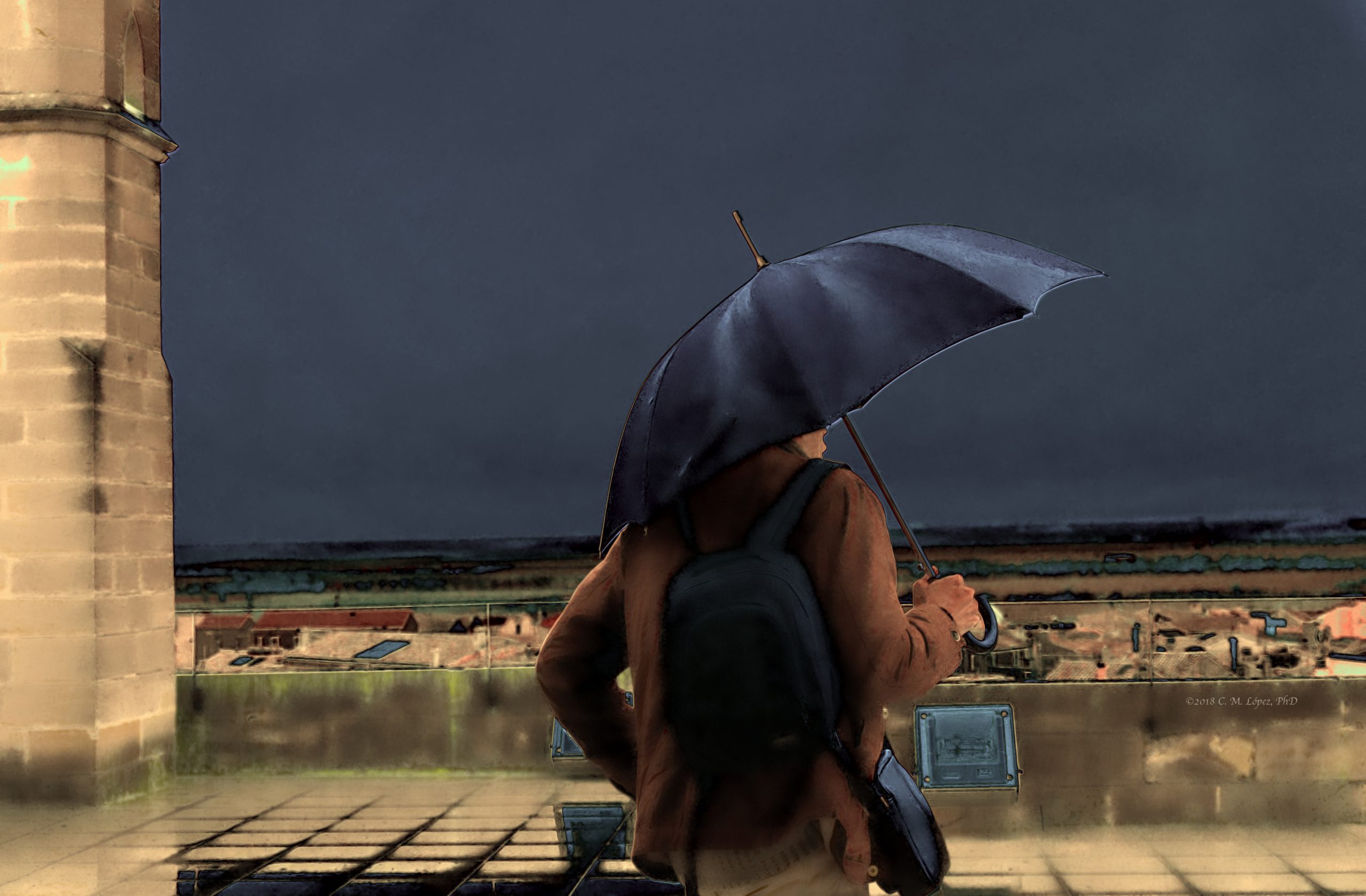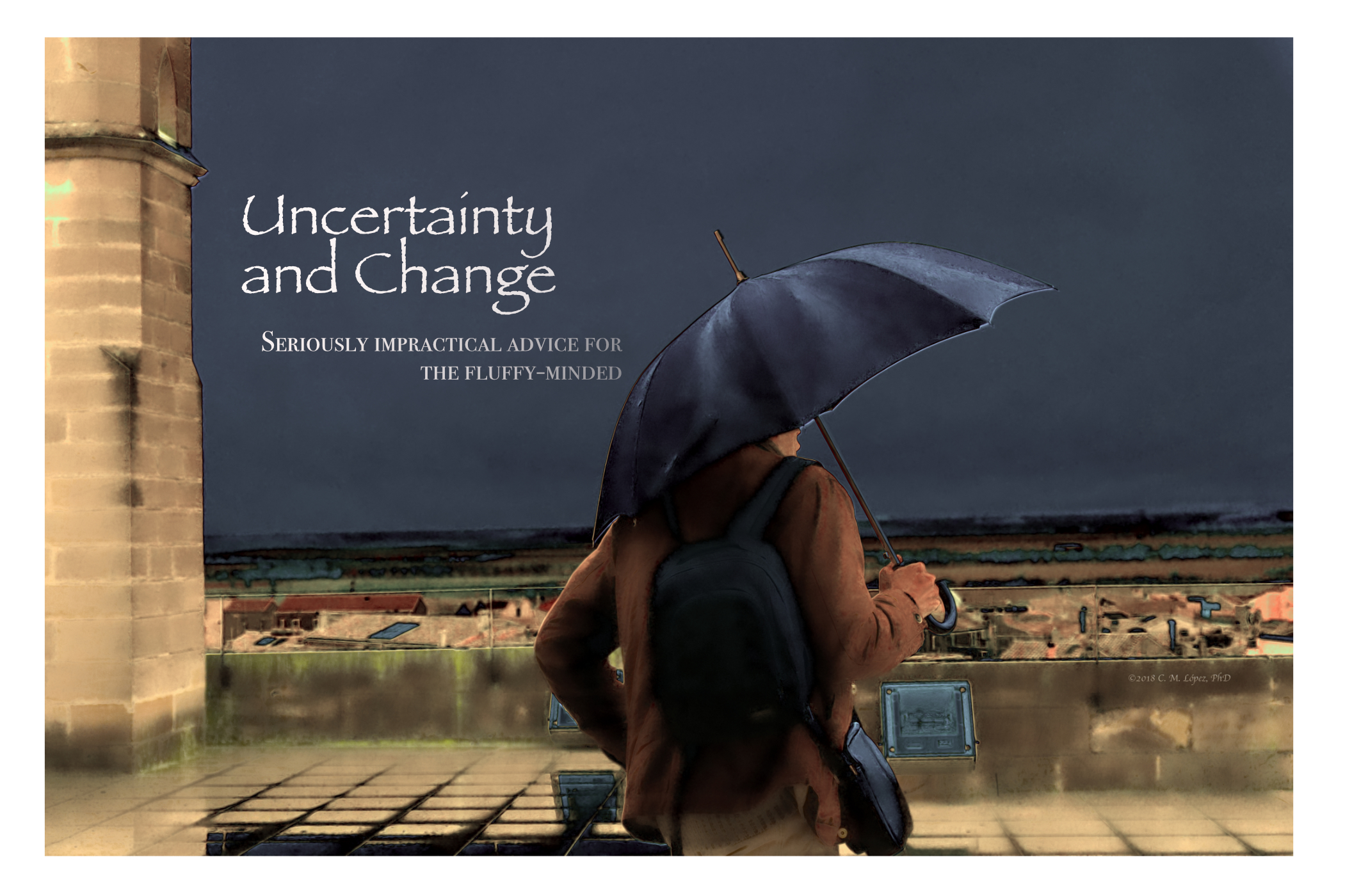
Uncertainty and Change

In this post:
A book critique and a collection of seriously impractical advice for the fluffy-minded.
A few months ago, I went back to read “Living Beautifully with Uncertainty and Change” by Pema Chödrön. Such a small book, such a long time to read. I bought this book last year in one of those book-shopping sprees that was no more than an attempt to make my time in Qatar bearable, it had stayed on the shelves for a while. Then it migrated to my night table together with another book of similar inclinations—books that proclaimed to rework the teachings of the Buddha for modern western audiences—and there it stayed for more than six months. Every night I took it up looking for enlightenment or to learn something interesting; today I finished it without being able to accomplish my goal.

How to deal with change (and the uncertainty associated with it) is one of those favorite topics of self-help books that prophets and gurus of all times like. I am not sure about Jesus, though. I don’t remember any gospel that talked specifically about how things change and how one needs to be flexible and adaptable, but I might be mistaken. After all, my bible reading days are really far behind me. Anyway, change, uncertainty, distress, impermanence, all those things, have been such an important part of my life that I feel intensely attracted to the topic. Whenever I have a doubt or an important question I look to books for the answer. Books can potentially pack the distilled wisdom of the world in just a few pages, and they are nice things to carry; they make one look intellectual and vintage-chic. Besides that, the Buddha is my favorite psychologist of all times. What’s not to like? Right?
Wrong. Where to start? Where to start while still being compassionate and gentle? Oh my goodness…
This book annoyed me. I dropped it for a few weeks hoping to be ready for it later, I picked it up again to drop it once more after a couple of pages. I persisted; there very few books yet that had defeated me once I have decided to read them. (After all, I read the full two volumes of Don Quijote in high school. A year before the first volume was assigned in class. Warm-fuzzy memories.) But “Living Beautifully with Uncertainty and Change” was a hard nut to crack. I expected practical advice that I could have attempted to implement in real life; what I got were the words of some utterly narrow-minded person who attempted to second-guess lives that she did not know anything about, and a collection of stories(?) parables (?) fables (?) so surrealistically silly anything meaningful got lost amidst all the sappy details. I don’t doubt the good intention of the author, but I think her intended audience is so narrowly defined that anybody else that doesn’t fit the mold and attempts a reading, might find herself offensively kicked out of this book’s limited world view.
I was specially frustrated by chapter 8: The catalyst for compassion, which says so many esoterically ridiculous and impractical things that don’t seem to come from the same philosophy developed by the ever-practical Buddha. I did not get what I was looking for, but the book was stimulating in some unexpected ways. It made me think of things, even if it was just to criticize what I was reading. In chapter 8, the author quotes an unbelievably sappy poem which tells the story of a grandpa that, while driving somewhere with his grandson, stops the car several times to move frogs out of the road in the middle of a rain storm. The grandson protests and the grandpa replies that the frogs had as much desire to live as he did.—Well, most assuredly not! Who can know with certainty the minds of frogs? But so many frogs together probably meant mating season, the only desire those frogs have is to frolic even if it costs them their lives!—Then I went on to imagine so many scenarios in which stopping a car in the middle of a road during a rain storm could be so dangerous! I would have no desire to harm the frogs and would avoid it at almost any cost, except the life and safety of my grandson! Car accident, anybody? Then I started to worry about the grandpa getting sick because getting wet in the rain so many times. I thought about so many disaster scenarios for this stupid, stupid little story, and then after I thought of all the bad things that could have happened, what if the story can indeed be true and nothing disastrous results for the obvious stupidity. A lot of bad stuff do happen every day but at least as much bad stuff do not happen. I supposed all if this goes back to what has happened to me during these last few years, almost the worst case scenario happened and it is not so bad. Well, it is bad and sad but not as bad and sad as it could be and I can hope that it does not get much worse before it starts getting better. At least in my life. About those other poor people in the world that are suffering from really bad things, I am sending them meta and… And pontifying too much about this is just shallow. Moving on.
“Living Beautifully with Uncertainty and Change” seems to be a collection of seriously impractical advice for the fluffy-minded.
Buy it if:
(1) You like physical implausibilities and you like your self-help books to, following that principle, teach you how to fly
(2) You think that your issues had to do, and I quote here, “your greed, your jealousy, your hatred”
(3) You don’t believe in the Buddha but you do believe in the wisdom of fairies and a vegan diet
(4) You have a lot of money to spend and more time to waste
You’ll notice that it has excellent ratings in amazon.com; that goes to show you that there is a community of fuzzy-heads out there that can be very misleading with their recommendations. Anyway, now you have more data with which to reach an informed opinion, which might or might not be better but at least you can say you were not seriously misled.
Take a look at it in here: “Living Beautifully with Uncertainty and Change” by Pema Chödrön.
Did you like this post?
Then you will probably like: